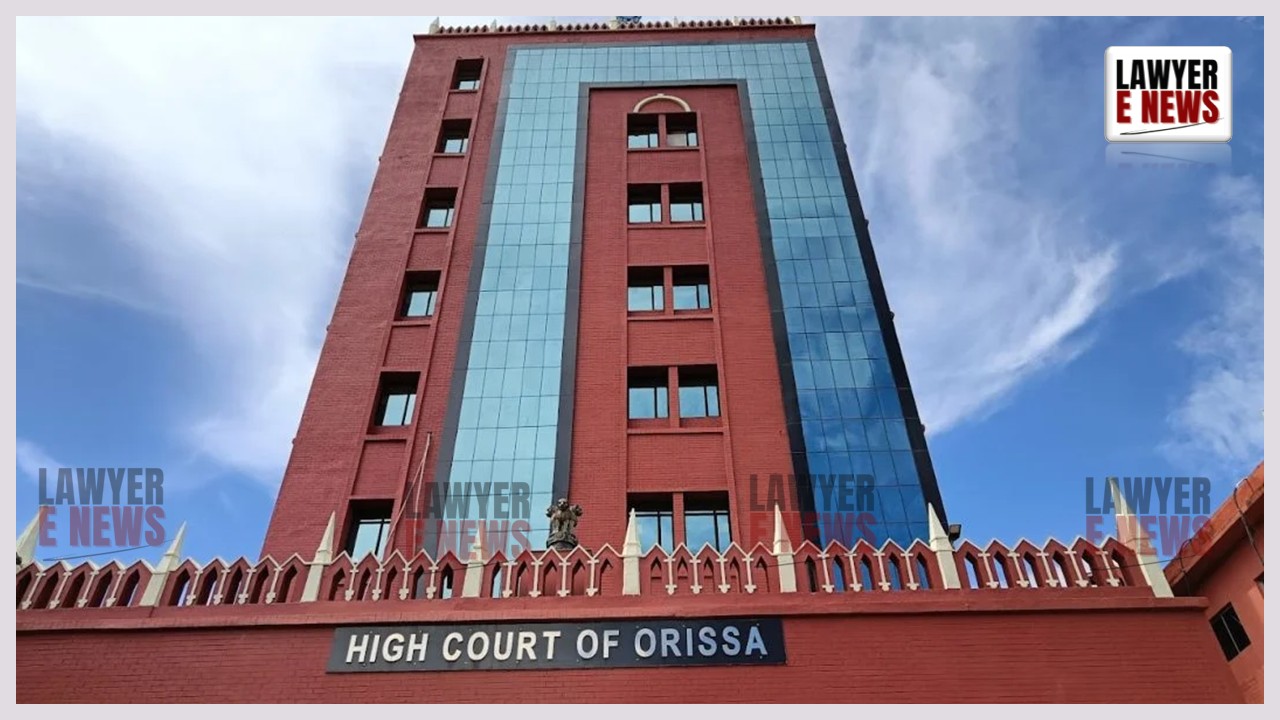-
by Admin
15 February 2026 5:35 AM



The Orissa High Court, in a judgment dated August 2, 2024, has set aside an earlier order by the Additional Senior Civil Judge, Balangir, rejecting the contractor’s suit on the grounds of being barred by the law of limitation. Justice Murahari Sri Raman highlighted the necessity of strict adherence to the limitation period in contractual disputes and rejected the plaint under Order VII Rule 11 of the Code of Civil Procedure, 1908.
The petitioner, Anil Kumar Dalal, had been awarded a contract for periodical repairs on National Highway No. 224 with an estimated cost of ₹96,51,671. However, he failed to complete the work, resulting in the contract being rescinded by the Chief Engineer, N.Hs. Odisha, Bhubaneswar on December 6, 2006. Subsequently, a penalty of 20% of the left-over work value was imposed, amounting to ₹10,30,110. The plaintiff, the State of Odisha, filed a suit for recovery of this penalty along with the cost of repairs.
The Court focused on the timeline and cause of action in the plaint. The contract was rescinded and the penalty imposed in December 2006. The suit, filed in 2011, clearly exceeded the three-year limitation period for such contractual claims. The court noted, “The plaintiff has not sufficiently disclosed the cause of action vis-à-vis the period within which the suit was to be filed from the date of cause of action”.
Justice Murahari Sri Raman elaborated on the principles underlying Order VII Rule 11, which allows for the rejection of a plaint that does not disclose a cause of action or is barred by any law. The judgment states, “The language of Order VII, Rule 11, CPC is quite clear and unambiguous which suggests that the plaint can be rejected on the ground of limitation”. The court emphasized that clever drafting cannot circumvent the clear limitations imposed by law.
The judgment reiterated that the limitation period is a fundamental aspect of legal proceedings, serving to prevent the indefinite threat of litigation and ensuring timely pursuit of claims. Justice Raman remarked, “The period of limitation is founded on public policy, its aim being to secure the quiet of the community, to suppress fraud and perjury, to quicken diligence and to prevent oppression”.
Justice Raman emphasized the significance of adhering to the limitation period, stating, “The underlying object of Order VII Rule 11(a) is that if in a suit, no cause of action is disclosed, or the suit is barred by limitation under Rule 11(d), the Court would not permit the plaintiff to unnecessarily protract the proceedings in the suit”.
The Orissa High Court’s judgment underscores the importance of the limitation period in legal disputes, particularly in contractual matters. By rejecting the suit, the court reinforced the principle that the law of limitation is essential to ensure the prompt and fair resolution of claims. This decision serves as a critical reminder to parties in contractual agreements to diligently adhere to the statutory timelines to avoid the dismissal of their claims.
Date of Decision: August 2, 2024
